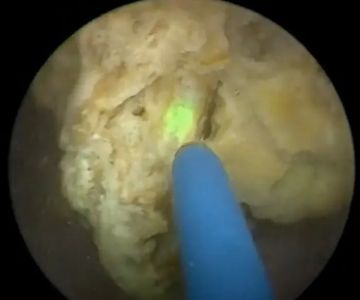Cat Food Allergies and Treatments: What Every Cat Owner Needs to Know
- Understanding Cat Food Allergies
- Common Symptoms of Food Allergies in Cats
- Treatments for Cat Food Allergies
- Best Foods for Cats with Allergies
- When to Consult a Vet for Food Allergies
Understanding Cat Food Allergies
As a cat owner, you may have noticed your furry friend exhibiting symptoms such as itching, vomiting, or digestive upset after meals. These could be signs of a food allergy. Just like humans, cats can develop allergic reactions to certain ingredients in their food. However, food allergies in cats can be tricky to diagnose, as the symptoms often resemble other health issues, making it important to understand the underlying causes.
Food allergies occur when a cat's immune system reacts to a particular protein or ingredient in their food. Common allergens in cat food include beef, chicken, dairy, and grains. Unlike food intolerances, which involve digestive upset, food allergies trigger an immune response that can cause inflammation, skin issues, and gastrointestinal problems.
Common Symptoms of Food Allergies in Cats
Recognizing the symptoms of food allergies in cats is the first step towards helping them feel better. The most common signs include:
- Itchy Skin: Excessive scratching, licking, or biting at the skin, especially around the face, ears, and paws.
- Vomiting or Diarrhea: Frequent gastrointestinal upset after eating, such as vomiting or diarrhea.
- Ear Infections: Cats with food allergies often develop recurring ear infections.
- Hair Loss: Constant scratching or licking can result in hair loss and bald spots.
- Red, Inflamed Skin: Areas of the skin may become red, swollen, or irritated, especially around the face, neck, and belly.
If you notice any of these symptoms in your cat, it may be time to consider food allergies as a possible cause. A vet visit can help confirm the diagnosis through an elimination diet or other diagnostic methods.

VCA Arboretum View Animal Hospital, 2551 Warrenville Rd, Downers Grove, IL 60515, USA
See DetailsTreatments for Cat Food Allergies
Treating food allergies in cats typically involves eliminating the offending ingredient from their diet. This can be done through a process called an elimination diet, where you feed your cat a special food that contains limited ingredients and then gradually reintroduce potential allergens one by one.
Once the allergen has been identified, your vet will recommend a long-term treatment plan. Some common treatments include:
- Prescription Diets: Specialized cat food formulated to avoid common allergens and promote healthy digestion.
- Hypoallergenic Foods: These foods contain novel proteins or hydrolyzed proteins, which are less likely to trigger an allergic reaction.
- Topical Treatments: In cases where skin reactions are severe, topical creams or medicated shampoos may help soothe irritation and reduce inflammation.
- Medications: Your vet may also prescribe antihistamines or corticosteroids to manage inflammation and discomfort during flare-ups.
Best Foods for Cats with Allergies
Choosing the right food for your cat with allergies is crucial in managing their condition. Some of the best foods for cats with food allergies are formulated with limited ingredients, novel proteins, or hydrolyzed proteins. These foods help reduce the chances of allergic reactions while providing the necessary nutrients for a healthy, balanced diet.
Some top choices include:
- Hill's Prescription Diet z/d: Known for its hydrolyzed protein formula, this diet helps cats with food allergies by preventing the immune system from reacting to common allergens.
- Royal Canin Hypoallergenic: This food contains novel proteins like duck and potato to minimize allergic reactions while ensuring complete nutrition.
- Blue Buffalo Basics Limited Ingredient Diet: This grain-free option is ideal for cats with sensitivities to common ingredients like chicken or grains.
When to Consult a Vet for Food Allergies
If you suspect your cat has a food allergy, it’s important to consult a vet to determine the cause and appropriate treatment. A vet can help you identify the specific allergen through diagnostic testing or an elimination diet. In some cases, your vet may recommend allergy testing or blood tests to pinpoint the trigger.
It’s also essential to consult your vet if your cat’s symptoms are severe or worsening. Persistent vomiting, diarrhea, or skin infections should not be ignored, as they can lead to further health complications.
Conclusion
Cat food allergies can be frustrating to deal with, but with the right approach, you can help your cat live a comfortable and healthy life. Identifying the cause of the allergy, switching to appropriate foods, and following a treatment plan prescribed by your vet can make a significant difference. If you are unsure about your cat's diet or suspect they may have food allergies, don't hesitate to reach out to a professional at Hidden Brook Veterinary for advice and support.










